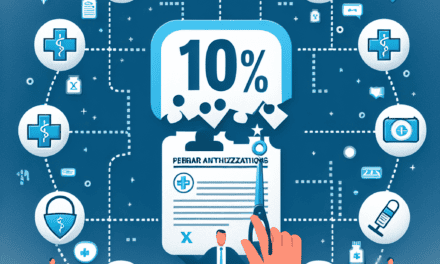Major Data Breach at Yale New Haven Health Affects 5.6 Million Individuals
In a world increasingly reliant on digital information, data breaches have become a significant concern for organizations and individuals alike. One of the most alarming incidents occurred at Yale New Haven Health (YNHH), where a major data breach compromised the personal information of approximately 5.6 million individuals. This article delves into the details of the breach, its implications, and the broader context of data security in healthcare.
Understanding the Breach: What Happened?
The data breach at Yale New Haven Health was discovered in early 2023, sending shockwaves through the healthcare community and raising questions about the security of sensitive patient information. The breach was attributed to a sophisticated cyberattack that exploited vulnerabilities in the health system’s IT infrastructure.
According to reports, the attackers gained unauthorized access to the network, allowing them to extract a vast amount of personal data. This included:
- Names
- Addresses
- Social Security numbers
- Medical records
- Insurance information
The breach was particularly concerning due to the sensitive nature of the information involved. Healthcare data is often targeted by cybercriminals because it can be sold on the dark web for significant sums. The breach at YNHH is one of the largest in recent history, highlighting the vulnerabilities that exist within healthcare systems.
In response to the breach, YNHH took immediate action to secure its systems and mitigate the damage. This included notifying affected individuals, offering credit monitoring services, and conducting a thorough investigation to understand the extent of the breach and prevent future incidents.
The Impact on Patients and Stakeholders
The ramifications of the YNHH data breach extend far beyond the immediate loss of data. For patients, the breach represents a significant violation of trust. Many individuals rely on healthcare providers to safeguard their personal information, and a breach of this magnitude can lead to feelings of vulnerability and anxiety.
Patients affected by the breach may face several potential consequences, including:
- Identity theft: With personal information such as Social Security numbers exposed, individuals are at a heightened risk of identity theft.
- Financial fraud: Cybercriminals can use stolen insurance information to file fraudulent claims, leading to financial losses for both patients and insurers.
- Emotional distress: The knowledge that personal health information is in the hands of criminals can lead to significant emotional distress for affected individuals.
For healthcare providers, the breach poses serious implications as well. YNHH faces potential legal repercussions, including lawsuits from affected patients and regulatory scrutiny from government agencies. The financial costs associated with data breaches can be staggering, with estimates suggesting that the average cost of a data breach in the healthcare sector exceeds $7 million.
Moreover, the breach could damage YNHH’s reputation, leading to a loss of patient trust and a decline in patient volume. In an industry where trust is paramount, rebuilding that trust after a significant breach can be a long and challenging process.
Legal and Regulatory Consequences
The legal landscape surrounding data breaches is complex and evolving. In the case of the YNHH breach, several legal and regulatory consequences are likely to arise. Healthcare organizations are subject to strict regulations regarding the protection of patient information, including the Health Insurance Portability and Accountability Act (HIPAA).
HIPAA mandates that healthcare providers implement safeguards to protect patient data and report breaches to affected individuals and the Department of Health and Human Services (HHS). Failure to comply with these regulations can result in significant fines and penalties. In the case of YNHH, the breach will likely trigger an investigation by HHS, which could lead to financial penalties if the organization is found to have violated HIPAA regulations.
Additionally, affected individuals may choose to pursue legal action against YNHH. Class-action lawsuits are common in the wake of data breaches, as individuals seek compensation for damages incurred as a result of the breach. These lawsuits can be costly and time-consuming for organizations, further compounding the financial impact of the breach.
Furthermore, the breach may prompt state attorneys general to investigate potential violations of state data protection laws. Many states have enacted laws requiring organizations to implement specific security measures to protect personal information. If YNHH is found to have failed in this regard, it could face additional legal consequences.
Preventing Future Breaches: Lessons Learned
The YNHH data breach serves as a stark reminder of the importance of robust cybersecurity measures in healthcare organizations. As cyber threats continue to evolve, healthcare providers must remain vigilant in their efforts to protect sensitive patient information. Several key lessons can be drawn from this incident to help prevent future breaches:
- Invest in cybersecurity infrastructure: Healthcare organizations must prioritize investments in cybersecurity technologies and infrastructure. This includes implementing firewalls, intrusion detection systems, and encryption protocols to safeguard sensitive data.
- Conduct regular security audits: Regular security audits can help organizations identify vulnerabilities in their systems and address them before they can be exploited by cybercriminals.
- Employee training and awareness: Employees are often the first line of defense against cyber threats. Providing regular training on cybersecurity best practices can help employees recognize potential threats and respond appropriately.
- Incident response planning: Organizations should develop and regularly update incident response plans to ensure they are prepared to respond quickly and effectively in the event of a data breach.
- Collaboration with cybersecurity experts: Partnering with cybersecurity experts can provide organizations with valuable insights and resources to enhance their security posture.
By implementing these measures, healthcare organizations can better protect themselves against the growing threat of cyberattacks and safeguard the sensitive information of their patients.
The Future of Data Security in Healthcare
The YNHH data breach is a wake-up call for the healthcare industry, underscoring the urgent need for improved data security measures. As technology continues to advance, so too do the tactics employed by cybercriminals. The healthcare sector must adapt to this evolving landscape to protect patient information effectively.
Several trends are shaping the future of data security in healthcare:
- Increased regulation: Governments and regulatory bodies are likely to impose stricter regulations on data protection in healthcare. Organizations must stay informed about these changes and ensure compliance to avoid legal repercussions.
- Adoption of advanced technologies: The use of artificial intelligence (AI) and machine learning (ML) in cybersecurity is on the rise. These technologies can help organizations detect and respond to threats more effectively, enhancing overall security.
- Focus on patient education: As patients become more aware of data security issues, healthcare organizations must prioritize patient education. Providing information on how patients can protect their own data can foster trust and collaboration.
- Collaboration across sectors: Cybersecurity is a shared responsibility. Collaboration between healthcare organizations, government agencies, and cybersecurity firms can lead to more effective strategies for combating cyber threats.
- Emphasis on data minimization: Organizations should adopt data minimization practices, collecting only the information necessary for patient care. This reduces the amount of sensitive data at risk in the event of a breach.
As the healthcare industry navigates these changes, it is essential to prioritize data security to protect patients and maintain trust in the healthcare system.
Conclusion: Key Takeaways
The major data breach at Yale New Haven Health serves as a critical reminder of the vulnerabilities that exist within the healthcare sector. With 5.6 million individuals affected, the implications of this breach are far-reaching, impacting patients, healthcare providers, and the broader regulatory landscape.
Key takeaways from this incident include:
- The importance of robust cybersecurity measures to protect sensitive patient information.
- The potential legal and regulatory consequences that organizations face in the wake of a data breach.
- The need for ongoing employee training and awareness to mitigate risks associated with human error.
- The significance of incident response planning to ensure organizations can respond effectively to breaches.
- The evolving landscape of data security in healthcare, driven by technological advancements and regulatory changes.
As the healthcare industry continues to grapple with the challenges posed by cyber threats, it is imperative that organizations prioritize data security to safeguard the trust of their patients and ensure the integrity of the healthcare system.





